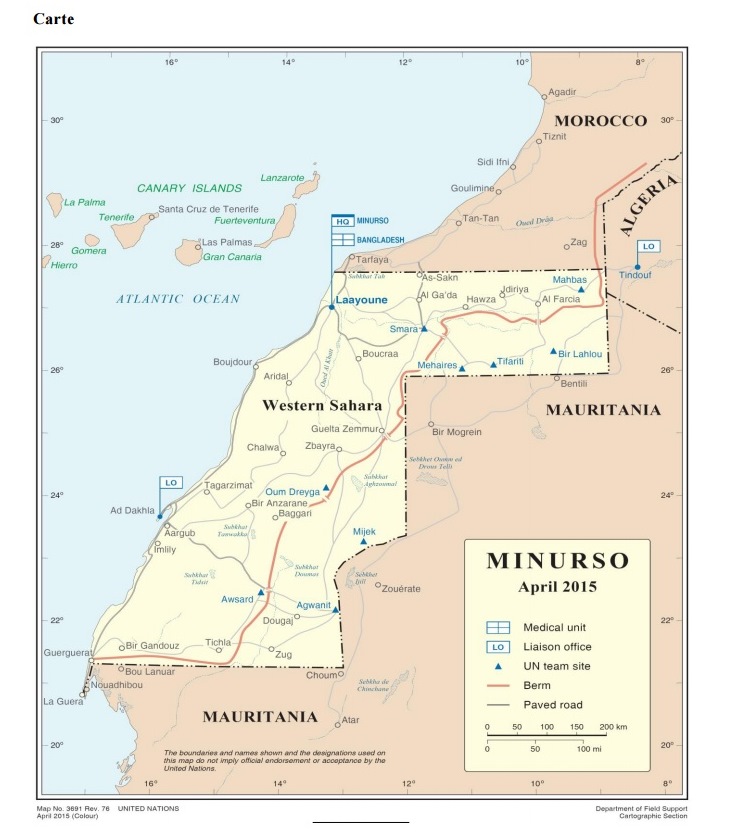21752 - New UN resolution on Western Sahara
N. Lygeros
Translated from the Greek by Athena Kehagias
We all know at what an extremely slow pace the UN resolutions come into effect.
However, the advantage of this delay is the avoidance of errors of haste.
Within the context of the problematics in regards to the Western Sahara, we have so far ten resolutions, in a negotiation process, which began in 2007, with the first resolution 1754.
In this context, we have observed gradually the proposal of autonomy to evolve .
Along always the same path, we can also observe both the precipitation, and the protection of human rights in Western Sahara and in the Tindouf refugee camps.
Gradually, we see that there is a point of convergence of views, despite the initial differences. As some views are obsolete, while others are reliable, realistic and possible.
Therefore, it becomes increasingly clear that, while some are using this situation as part of their politcs, others are actually trying to solve the problem effectively, in a constructive and stable manner.
In order to see the progress of the situation, it is interesting to read the Secretary General’s report in regards to the case of Western Sahara (April 10, 2015), because it allows us to see clearly what is really happening at a transnational level, while some are presenting the problem as if it were an issue of human rights of a specific population.
The Royal Advisory Council for Saharan Affairs holds a standard position, and points out the possibility to implement a development strategy for all the provinces of the South.
This form of a solution allows simultaneously, the solving of the inescapable condition of the camps in Tindouf, without insisting on the fact that the information which we obtain regarding this situation is fragmented.
Nevertheless, the following data exists: “the persistence of individual complaints in regards to acts of torture, or ill-treatment by security forces of the Polisario Front, the commitment of persecution against civilians before military courts, the insistence on the remnants of slavery, and the political monopolization by the Polisario Front ».

